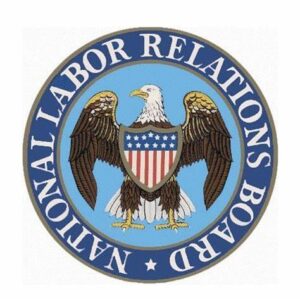
For the last three weeks, employment lawyers have been in a tizzy about the NLRB’s decision in Stericycle, Inc. Here’s a link that will download a .pdf of the decision for you: Stericycle decision. Now, it might be an exaggeration for me to say that the NLRB “hates” handbooks, but after Stericycle handbooks are going to be subject to closer scrutiny.
What does that mean? Why does the NLRB even care about what’s in your handbook? Well, the National Labor Relations Board enforces the National Labor Relations Act. And, the NLRA protects the right of workers to engage in “concerted activity” to improve their pay or working conditions. It also prohibits employers from interfering with an employee’s attempt to exercise those rights.
In Stericycle, the NLRB decided that some employees might read employment policies and be afraid of engaging in concerted activity — for fear of violating the handbook and getting fired. So, the NLRB created a new rule to limit the impact of employment policies and handbooks. Under the new rule, a workplace policy is presumed to be unlawful if it “could” be interpreted to limit employee rights. Additionally, the NLRB is going to review policies based on the perception of a so-called “economically dependent” employee who might be fearful of engaging in protected activity.
So, what does this mean for employers? Should every employer conduct an exhaustive analysis of its handbook and bring all policies in compliance with the Stericycle standard? As most lawyers will tell you, the answer is: “It depends.”
In large part, the answer depends on whether your employees are likely to accuse you of an Unfair Labor Practice. A policy that violates Stericycle is an Unfair Labor Practice under the NLRA. The NLRB is responsible for stopping Unfair Labor Practices. But, based on my experience, the odds are very low that an Unfair Labor Practice allegation will be filed against most employers in Alabama. Industries that historically interact with labor unions (coal mines and auto manufacturers come to mind) have a greater chance of an allegation. If the NLRB finds that you’ve engaged in an Unfair Labor Practice, they can impose a number of remedies, including rescission of the policy, a cease-and-desist order and a requirement to post notices around the workplace.
As an employer, your response to the Stericycle decision depends on your risk tolerance. Are you willing to do whatever it takes to fully comply with all aspects of federal employment and labor law? Or, do you recognize that full compliance is difficult and costly? Do you just want to make a good faith effort at compliance?
These are questions that each employer has to answer for itself. A good employment lawyer can help you review your risk tolerance and develop the best plan for your business.